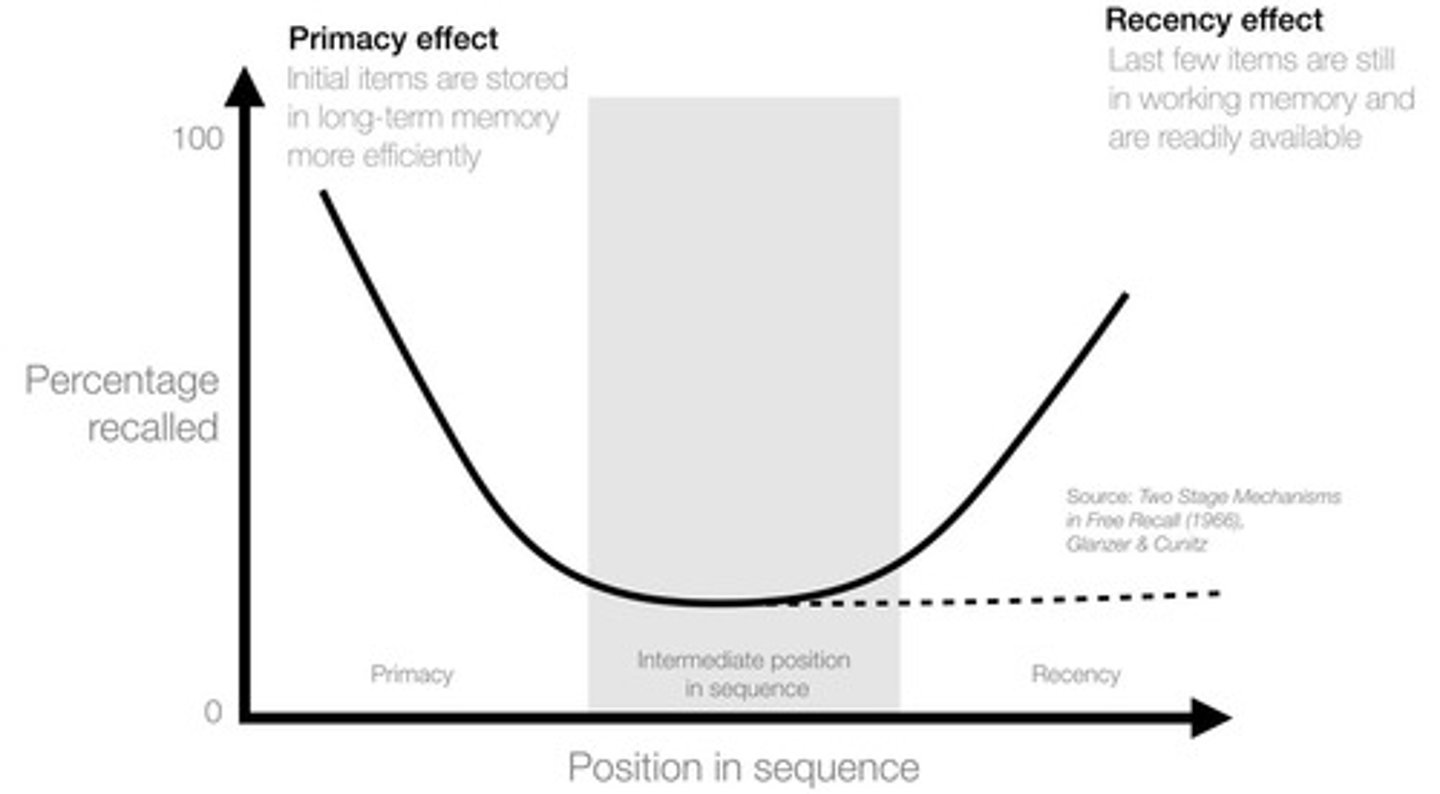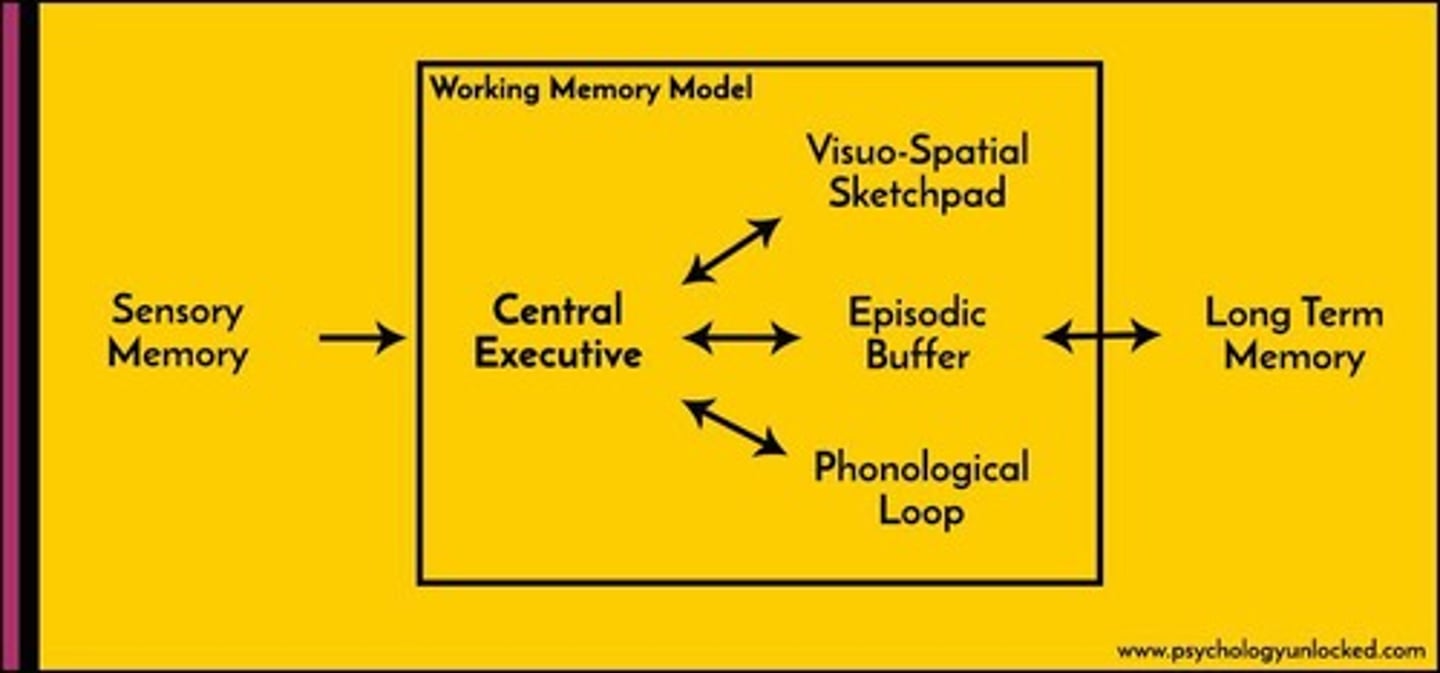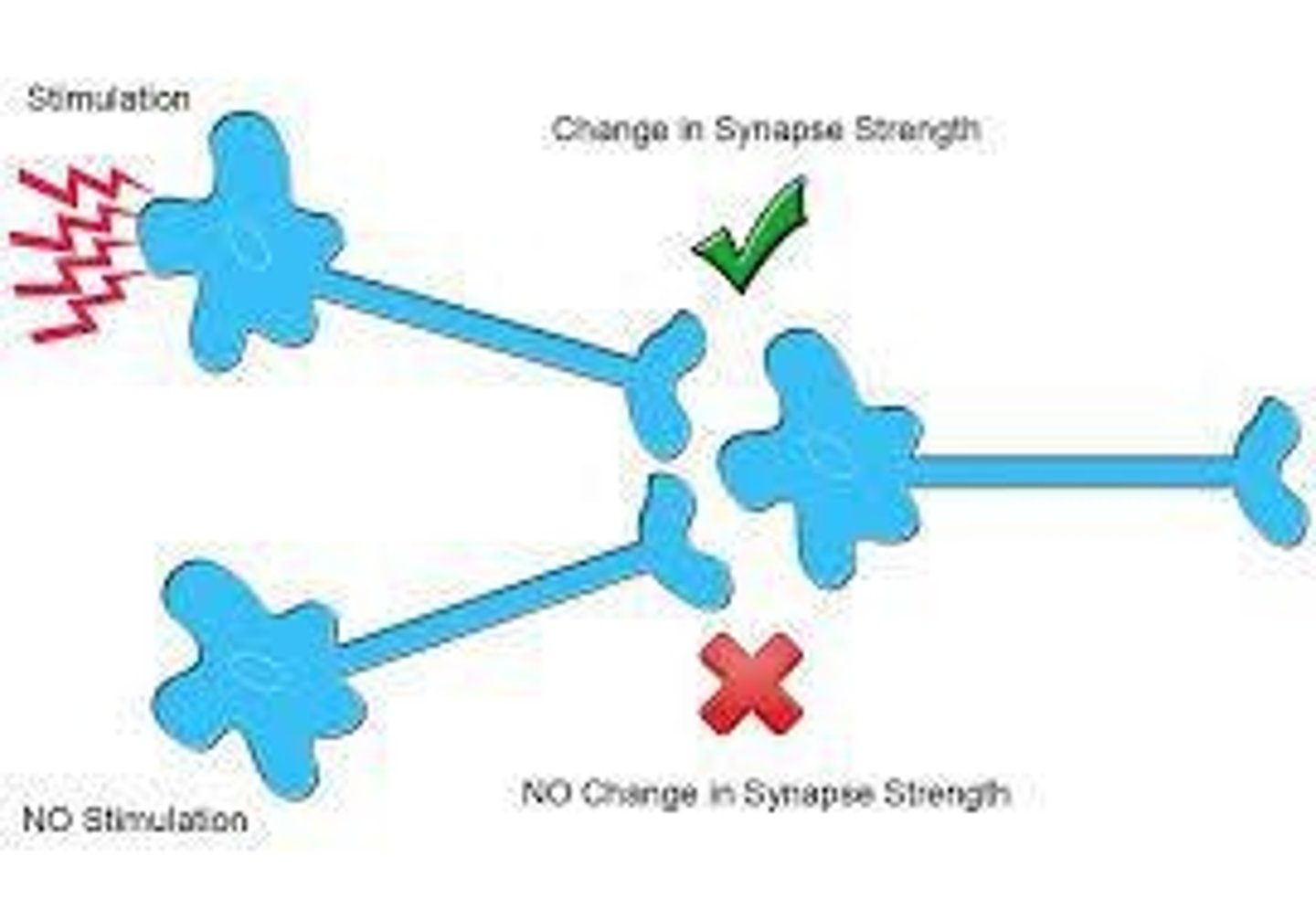Biological Bases of Behaviour & Memory: Module One
1/27
There's no tags or description
Looks like no tags are added yet.
Name | Mastery | Learn | Test | Matching | Spaced | Call with Kai |
|---|
No analytics yet
Send a link to your students to track their progress
28 Terms
Memory
Recording past experiences for present use.
Episodic Memory
Memory of personal experiences and events.
Semantic Memory
Memory of facts and general knowledge.
Autobiographical Memory
Memory of personal life history.
Emotional Memory
Memory influenced by emotional experiences.
Encoding
Converting information into a storable format.
Storage
Maintaining memory traces over time.
Retrieval
Accessing stored memories when needed.
Ebbinghaus's Forgetting Curve
Rapid initial memory loss, then stabilization.

Nonsense Syllables
Used by Ebbinghaus to test memory retention.
Short-Term Memory (STM)
Holds 7±2 items for 15-20 seconds.
Long-Term Memory (LTM)
Stores information indefinitely.
Serial Position Effect
Recall influenced by item position in sequence.

Anterograde Amnesia
Inability to form new long-term memories.
Retrograde Amnesia
Loss of past memories before an event.
Working Memory
Active processing system for temporary information.

Central Executive
Directs attention and manages cognitive resources.
Phonological Loop
Handles verbal and auditory information.
Visuospatial Sketchpad
Processes visual and spatial information.
Episodic Buffer
Integrates information from different memory systems.
Elaborative Rehearsal
Links new information to existing knowledge.
Maintenance Rehearsal
Repetition of information to keep it active.
Memory Consolidation
Stabilizing memories in long-term storage.
Schemas
Cognitive frameworks for organizing information.
Interference
Competing memories disrupt recall and learning.
Source Monitoring Errors
Misattributing the origin of a memory.
Hebb's Law
Cells that fire together wire together.

Neurotoxins
Substances that disrupt neuronal signaling.